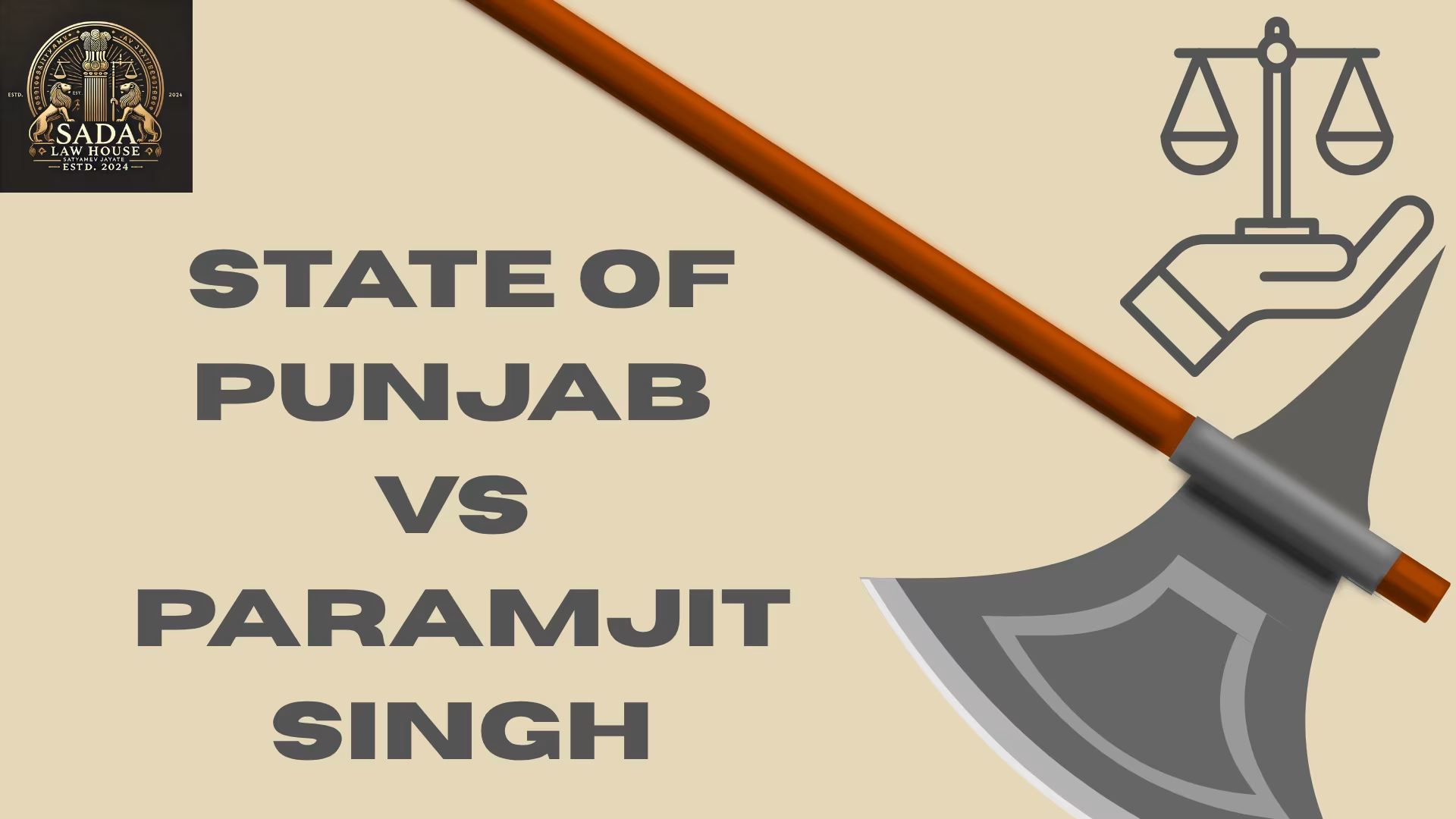State of Punjab v. Paramjit Singh (02 August 2023)
- Reha Bhargav
- 14 October, 2025

Introduction:
The case of State of Punjab v. Paramjit Singh, decided on 2 August 2023, involves an appeal filed by the State of Punjab challenging the acquittal of the respondent, Paramjit Singh, under Section 302 of the Indian Penal Code (IPC) for the offence of murder.
The prosecution alleged that Paramjit Singh fatally attacked the victim with a gandasa (sharp-edged weapon) based on eyewitness and circumstantial evidence. However, the Punjab and Haryana High Court acquitted the accused, citing major inconsistencies in witness statements and lack of corroborative evidence.
The Supreme Court examined whether the High Court was justified in granting the acquittal and whether the evidence presented by the prosecution was sufficient to sustain a conviction beyond reasonable doubt.
Background (Facts of the Case):
The case arose from an incident in which the deceased was allegedly assaulted and killed by the respondent, Paramjit Singh, using a gandasa. The FIR was filed based on the statement of an eyewitness who claimed to have seen the attack.
The Trial Court convicted the accused under Section 302 IPC, primarily relying on this eyewitness account.
However, on appeal, the High Court of Punjab and Haryana reversed the conviction, citing:
Material contradictions in witness testimonies.
Lack of forensic or medical corroboration.
Procedural lapses in investigation.
The State of Punjab challenged this acquittal before the Supreme Court, asserting that the High Court had wrongly ignored credible evidence.
Key Developments:
The prosecution emphasized the reliability of the eyewitness testimony and claimed the High Court erred by giving undue importance to minor inconsistencies.
The defense argued that there were major contradictions in the prosecution’s case and no independent or scientific corroboration of the alleged crime.
The Supreme Court thoroughly reviewed the FIR, eyewitness testimony, and investigation records before determining the credibility of the evidence.
Issue of the Case:
Whether the High Court was justified in reversing the conviction and acquitting Paramjit Singh under Section 302 IPC, despite the presence of an alleged eyewitness and the Trial Court’s contrary findings?
Judgment (Current Status):
The Supreme Court, comprising Justice Abhay S. Oka and Justice Sanjay Karol, dismissed the State’s appeal and upheld the High Court’s acquittal of Paramjit Singh.
Key findings of the Court:
The eyewitness account contained material inconsistencies regarding time, location, and sequence of events.
The alleged weapon recovery was not conclusively linked to the accused.
No forensic or medical evidence corroborated the prosecution’s version.
The prosecution failed to prove guilt beyond reasonable doubt, as required in criminal trials.
Final Decision:
Appeal dismissed.
Acquittal of Paramjit Singh upheld.
Conclusion:
The Supreme Court reaffirmed the long-standing principle that conviction in criminal cases must rest on credible, reliable, and corroborated evidence. Suspicion, however strong, cannot take the place of proof.
Given the inconsistencies in testimony, absence of forensic backing, and weak investigation, the Court held that the benefit of doubt rightly belonged to the accused.
By dismissing the State’s appeal, the Court reinforced the importance of judicial prudence and evidentiary certainty in criminal trials, emphasizing that a fair trial must always protect against wrongful conviction.
Case Laws






